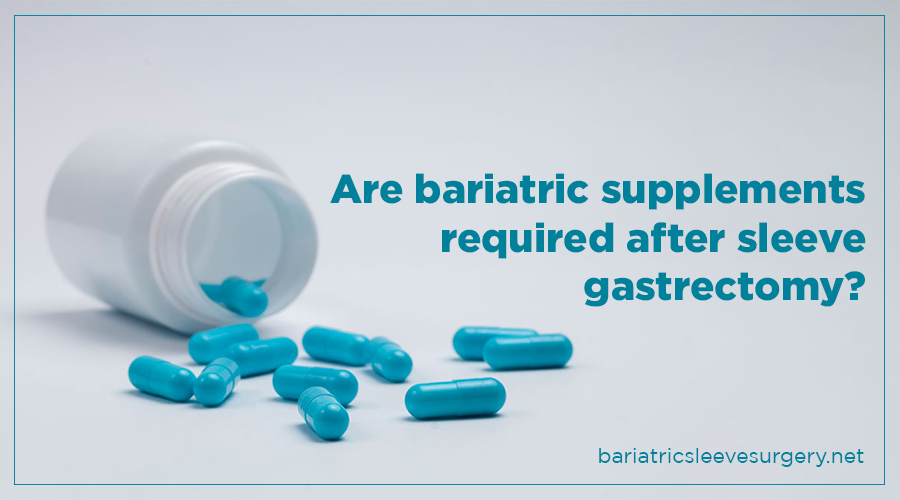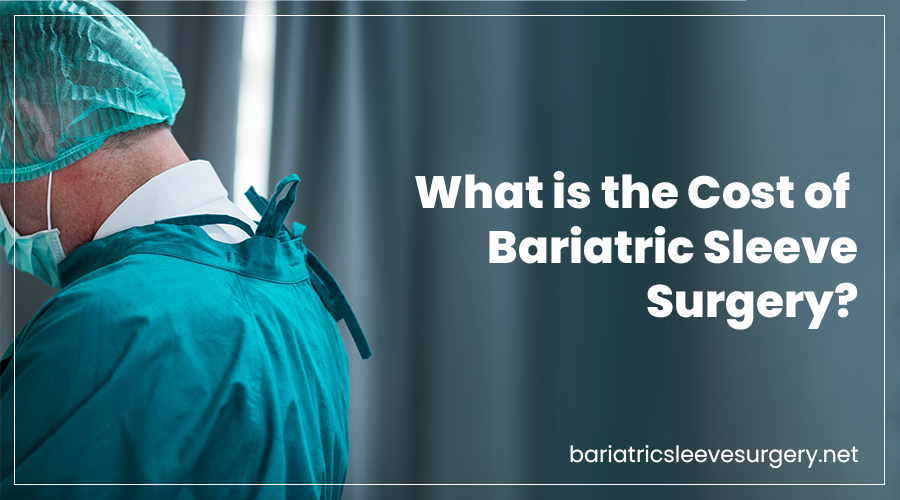Is bariatric surgery synonymous with gastric sleeve surgery?
Although both are types of weight loss surgery, bariatric surgery and gastric sleeve surgery are not the same. Bariatric surgery …

Although overweight and obesity are perceived by many as an aesthetic problem, it is actually a disease that affects health and needs to be treated. Excess weight causes many diseases in the human body. Thanks to bariatric sleeve gastrectomy surgery, these diseases are completely healed or their level is reduced.
Gastric sleeve surgery is a surgical procedure that reduces the amount of food consumed by reducing the volume of the stomach by 80-85%. A large part of the stomach is removed and a new stomach volume is created. Generally, the gastric capacity is reduced to 100 ml.
After sleeve gastrectomy, patients are fed according to certain stages. In the first stage, the patient is fed with liquid for several weeks. Afterwards, they start a puree diet and the determined foods are mashed and consumed. In the final stage, the patient gradually begins to consume solid foods. Since the stomach is an organ that renews itself quickly and is prone to re-growth, you should follow the nutrition program recommended by your doctor and dietitian in order to lose weight in a healthy way after the operation.
The amount of weight lost after sleeve gastrectomy surgery is personal, and not every patient can lose weight at the same rate. The patient’s body mass index, targeted weight, age and gender of the patient affect weight loss. Generally, 55% of the current weight is lost within 1 year after sleeve gastrectomy operation. The first month after the operation is the fastest weight loss process, then the weight loss slows down and the patient should follow the diet during this period.
In sleeve gastrectomy surgeries, 80-85% of the stomach is removed and the stomach volume is reduced. After the operation, the stomach volume increases slightly, but thanks to the correct feeding of the patient, the stomach does not grow again.
After stomach surgery, the past diet should be completely changed. If the patient does not change his eating habits and eats irregularly as before, the stomach grows again and weight gain begins.
During the weight gain process, the skin is stretched and cracks form on it. After bariatric surgery, sagging is experienced due to loosening of the skin due to rapid weight loss. With the right exercise and sports training after the operation, you can prevent these deposits. Since this skin sagging problem is more common in morbidly obese patients, aesthetic operations such as tummy tuck can be performed to remove excess skin after the operation.
Obesity affects people’s health. While many diseases are caused by overweight, diabetes is among the most common diseases. Diabetes mellitus is completely cured in 66% of patients who have undergone sleeve gastrectomy surgery, while the remaining patients have a serious improvement in the disease. Insulin resistance is common in many overweight people. After bariatric surgery, there is complete improvement in insulin resistance, which causes diabetes.
In sleeve gastrectomy surgeries, the age limit is generally determined as 18-65. In some cases, obesity surgery can be performed at the age of 15-16 with the approval of the family at an early age due to obesity problems in children in adolescence. In order to perform bariatric surgery for young patients, it is taken into account that there are diseases that threaten the health of the person. If the person does not have serious health problems that will prevent the operation, there are also patients whose upper age limit is up to 70 years.
Gastric sleeve gastrectomy and obesity surgeries are generally performed with closed methods. Small incisions are made in the abdomen and the stomach structure is intervened by entering the abdomen through those holes. Since the incisions made in closed stomach surgeries are not large, there are no visible permanent scars. Thanks to the drugs and creams recommended after the operation, these scars are almost completely gone.
Since a large part of the stomach where the hunger hormone is secreted is removed in the sleeve gastrectomy surgery, the feeling of hunger is suppressed or reduced in the patients. An increase in stomach volume and appetite may occur 1-2 years after gastric surgery, and accordingly, weight gain may increase again. In order to prevent this situation, high-calorie and carbohydrate foods should not be consumed after the operation. Frying, acidic drinks, alcohol, prepackaged foods and sauces, sugary products should not be consumed.
Gastric sleeve surgery is aimed at reducing the stomach volume and restricting food intake. Intervention in the intestines as in other methods and does not affect nutrient absorption. In the methods in which nutrient absorption is reduced, some problems such as vitamin and mineral deficiency, iron deficiency, B12 deficiency are experienced in patients. To prevent this situation, you should take care to use additional supplements recommended by your doctor and dietitian. The body may experience a feeling of cold due to rapid weight loss at first, which is resolved when the body gets used to the new weight. The water consumption of the patients is determined according to the rules of wife-liquid intake recommended by the dietitian.
There are many additional health problems related to obesity, which is among the most common health problems worldwide. While being overweight causes many chronic diseases, it also affects the reproductive system. Hormonal disorders due to excess weight make pregnancy difficult in women and reduce sperm quality in men. People who have reproductive problems due to overweight can find solutions to their problems by losing weight quickly thanks to obesity surgery. Bariatric surgery does not offer a solution to hereditary infertility problem.
Gastric sleeve surgery is among the most comprehensive bariatric surgery methods with proven effectiveness. In sleeve gastrectomy surgeries, the volume of the stomach is reduced and the absorption is restricted and the food intake is reduced, so the patient starts to lose weight quickly. In sleeve gastrectomy operations, rapid weight loss is achieved thanks to the calorie deficit without decreasing the body resistance of the person.
Gastric bypass surgeries are the most applied method after sleeve gastrectomy operations. With the procedure applied to the stomach and small intestines, the patient can lose weight quickly. Which patient will be operated with which method is decided according to the experience of the doctor, the patient’s age, existing diseases, body type and nutritional disorder.
The first month after sleeve gastrectomy is the most important process. In this process, it is aimed to heal the treated stomach and a special nutrition program is determined for this. In the personalized diet list, foods rich in vitamins, minerals and protein that will accelerate recovery are preferred. Collagen supplementation is recommended to prevent skin sagging.
Before gastric sleeve surgery, patients are thoroughly examined and blood tests are performed. Before the operation, patients are examined in many branches such as endocrinology, anesthesia, psychiatry, chest diseases, cardiology and they need to get approval for surgery from the doctors of these branches. As a result of the examinations, it is understood which obesity method the patient is suitable for.
Patients who are approved for the operation need to apply a special diet program both to make the operation more comfortable and to get used to the new diet after the operation. If a certain amount of weight is lost in line with this diet, the patient becomes ready for the operation both physically and psychologically and the operation is performed.
After the operation, your diet will change, and you should place sports and exercise at the center of your life. Since weight will be lost quickly after obesity surgery, there is a problem of skin sagging. In order to minimize this problem, activities that work the whole body, such as swimming, are recommended by doctors. Heavy sports and exercise should not be done immediately after the operation. After the operation, you can take light-paced walks after your doctor approves. After an average of 3 to 6 months after the operation, you can start sports activities with the approval of the doctor.
Pregnancy naturally causes weight gain again. Doctors generally recommend that women who have had bariatric surgery to have a healthy pregnancy should not get pregnant for at least 2 years. After the operation, it is necessary to wait 12 to 18 months in order to lose a healthy weight and reach the targeted ideal weight. After this process is completed, female patients who get used to the new body type and diet can become pregnant with the approval of the doctor.
After obesity surgery, it takes an average of 12 to 18 months to lose a healthy weight and reach the targeted weight. This duration is personal and varies from patient to patient. The body mass index of the person, age, gender, existing diseases, metabolic rate are the factors that affect the weight loss process. It takes a certain time for patients to reach their ideal weight and they need to pay attention to their nutrition in this process.
If weight is not lost despite careful attention to nutrition after an average of 12 to 18 months, a second gastric surgery can be performed. In order to perform gastric surgery for the second time, this process needs to be completed.
Obesity is a common problem for many people around the world. Today, obesity surgery provides solutions to overweight and health problems related to weight. There are some criteria that determine the price of bariatric surgery and sleeve gastrectomy surgeries. Some of these criteria are;
In order to get clear information for bariatric surgery, the patient must undergo a comprehensive examination. You can contact our institution for exact price information.

Although both are types of weight loss surgery, bariatric surgery and gastric sleeve surgery are not the same. Bariatric surgery …

Sleeve gastrectomy is a surgical procedure in which a significant portion of the stomach is removed, leaving behind a reduced, …

Following sleeve bariatric surgery, it is essential to adhere to a specific diet plan to ensure a successful recovery and …

A life-changing treatment, bariatric surgery may significantly enhance the health and well-being of people who are obese. Many patients who …

Are you ready to embark on a life-changing journey towards a healthier and happier you? If you’ve been struggling with …

Are you concerned about the expense of a sleeve operation, despite the fact that you are contemplating getting one? The …

In bariatric sleeve surgery, sometimes referred to as sleeve gastrectomy, a significant piece of the stomach is removed such that …

The sleeve bariatric surgery is a type of weight loss surgery that has received a lot of interest in recent …

There has been a rise in the popularity of bariatric sleeve surgery in recent years as a method of surgical …